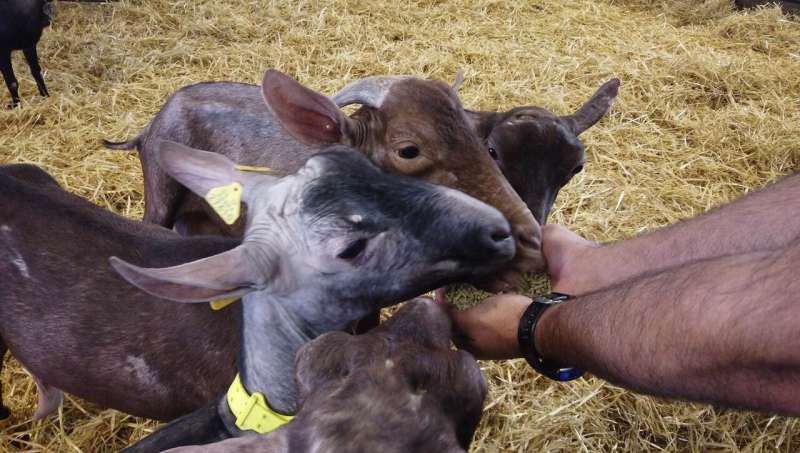Credit: Asociacion RUVID
Rice straw and waste from pruning citric fruit trees have a new use: feed for ruminant animals. A team of researchers from the Polytechnic University of Valencia (UPV) has designed new diets for cows, sheep, goats, etc. from these horticultural products. Among its benefits, the use of this new feed would help decrease the burning of these agricultural sub-products, as well as the emissions of methane generated by the animals. The first results have been published in the Animal Feed Science and Technology journal.
"Rice straw is being disposed of through the monitored burning of crops in recent years. Furthermore, waste from pruning citric fruit trees—orange and lemon trees—are also disposed of by burning or crushing them. All these practices cause major emissions of greenhouse gases into the atmosphere," explains professor Carlos Fernández, researcher at the Animal Science and Technology Institute of the UPV and person responsible for this project at the UPV.
The feed designed by the UPV researchers decreases the emissions of methane (greenhouse gas) by between 8 and 22%. As well as rice straw and citric fruit leaves, they include other ingredients that ensure that all the nutritional needs of the animal are met. And they also stand out because, as well as having an environmental benefit, they are useful for farmers because they revalue a sub-product, and for livestock farmers because they provide them with local food at a competitive price.
"The Low Carbon Feed diets have added rice straw and leaves from orange and lemon trees to the compound feed for ruminant animals. In other words, said waste has not been used as the source of the fodder, but it has been added as another ingredient to produce compound feed," adds Carlos Fernández. The feeds can be used to feed any type of ruminant animal (bovine, ovine, goats, zebu, water buffalo, yaks, cervids, etc.) and even herbivores such as camelids (dromedaries, camels, llamas, alpacas, vicuñas, etc.).
"It is also a proposal that complies with on of the principles of a sustainable agricultural-farming system: the three Rs—Reuse, Recycle and Reduce -, without harming or altering the productive level of the animals," says Fernández.
More information: C. Fernández et al. Use of orange leaves as a replacement for alfalfa in energy and nitrogen partitioning, methane emissions and milk performance of murciano-granadina goats, Animal Feed Science and Technology (2018). DOI: 10.1016/j.anifeedsci.2018.11.008
Provided by Asociacion RUVID























